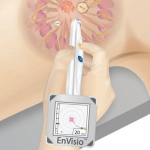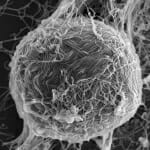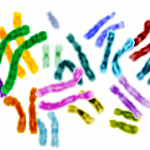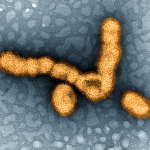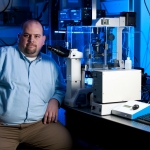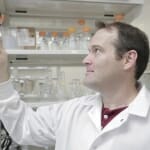Category Health & Wellness
Pharmacy students lead training to educate and empower Alzheimer’s caregivers
PharmD students in the Phi Lambda Sigma student organization are helping caregivers with in-person training that not only walks through some techniques for safe medication adherence and administration, but also where to find community resources for additional support and how to preserve their own wellbeing.
Invention is an insulin innovation
A University of Wisconsin–Madison alumnus is now selling a patented device to help people with diabetes safely and easily inject insulin with just one hand.
Compassion training for parents may reduce their children’s stress
“It is critical to include parents of infants and very young children in this research because preventing stress-related difficulties in children is a more effective approach than intervening after problems develop.”
75 years later, UW–Madison inventors aim to replace old-style breast-surgery marker
Under Elucent's system, a SmartClip is placed in a patient's tumor that emits a high frequency signal or “chirp” when activated, so it can guide the surgeon to the tissue that needs to be removed.
Inflammation predicts response to anti-depression medication
Children and teens with bipolar depression responded better to the drug if they had increased markers of inflammation in their blood, a new UW–Madison study shows.
Plants may offer potential for new treatment of deadly disease
The Departments of Botany and Geography’s Ken Keefover-Ring had the right training to help analyze plant compounds that could someday slow prostate cancer.
Mindfulness video game changes areas of the brain associated with attention
The game was designed for middle schoolers and requires them to count their breaths by tapping a touch screen to advance through relaxing landscapes such as ancient Greek ruins and outer space.
Low genetic risk for ADHD may protect against negative life experiences
Adults with lower genetic risk for ADHD also reported, on average, higher IQs and educational attainments, shorter or no criminal records, lower body mass index (BMI), and lower rates of depression than adults with middle-to-high genetic risk for ADHD.
Clinical trial for Ebola vaccine developed at UW–Madison underway in Japan
Fifteen healthy young men will receive two doses of the experimental vaccine. If the first group tolerates it, an additional group of up to 20 volunteers will receive a higher dose of the vaccine.
New tool predicts three-dimensional organization of human chromosomes
The predictive tool is a boon for researchers studying how cells control the activity of genes, helping explain how cells achieve their key functions and how they go haywire, as happens in diseases such as cancer.
Delirium linked to brain injury after severe surgery
The researchers were able to demonstrate that delirium is associated with injury to nervous tissue in the brain that could lead to loss of cognitive ability.
New flu drug drives drug resistance in influenza viruses
A study examined the effects of baloxavir treatment on influenza virus samples collected from patients before and after treatment.
Professor will make ‘workhorse’ microscope more powerful
Kevin Eliceiri says he has always believed that science is best done by building on the work of others and openly sharing what you have done.
Can ‘smart toilets’ be the next health data wellspring?
Wearable, smart technologies are transforming the ability to monitor and improve health, but a decidedly low-tech commodity — the humble toilet — may have potential to outperform them all.





